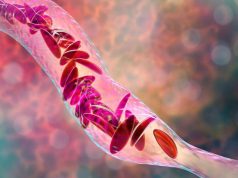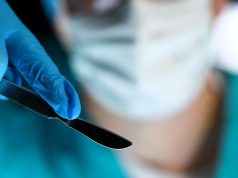In small trial, patients were able to grow new cartilage in the joint
FRIDAY, Oct. 21, 2016 (HealthDay News) — A new approach to the treatment of articular cartilage injuries has been developed and appears promising, according to a report published in the Oct. 22 issue of The Lancet.
Ivan Martin, Ph.D., a professor of tissue engineering at the University of Basel in Switzerland, and colleagues isolated chondrocytes from a 6 mm nasal septum biopsy specimen. The team then expanded and cultured the cells onto collagen membranes to engineer cartilage grafts. The engineered graft was used to replace damaged cartilage after it was surgically removed from the patient’s knee. Ten patients with symptomatic, posttraumatic, full-thickness cartilage lesions on the femoral condyle or trochlea were treated.
Two years after the procedure, magnetic resonance imaging revealed that new tissue had developed that was similar to normal knee cartilage. In addition, nine patients reported improvements in the use of their knee and less pain. One patient was excluded because of several new sports injuries. No adverse reactions were reported, but two serious adverse events unrelated to the procedure occurred — an independent injury in the untreated knee and new cartilage damage in other areas of the treated knee, the researchers said.
“Treatment of cartilage injuries remains a significant clinical problem, and there is no gold standard treatment and no optimal treatment available,” Nicole Rotter, M.D., vice chair of the department of otorhinolaryngology at Ulm University in Germany, told HealthDay. Using cells from the nose for joint repair is completely new, added Rotter, who co-wrote an editorial accompanying the study. “Nasal cartilage might be a great source for cartilage repair; however, further clinical studies are required,” she added.
Full Text (subscription or payment may be required)
Editorial (subscription or payment may be required)
Copyright © 2016 HealthDay. All rights reserved.








